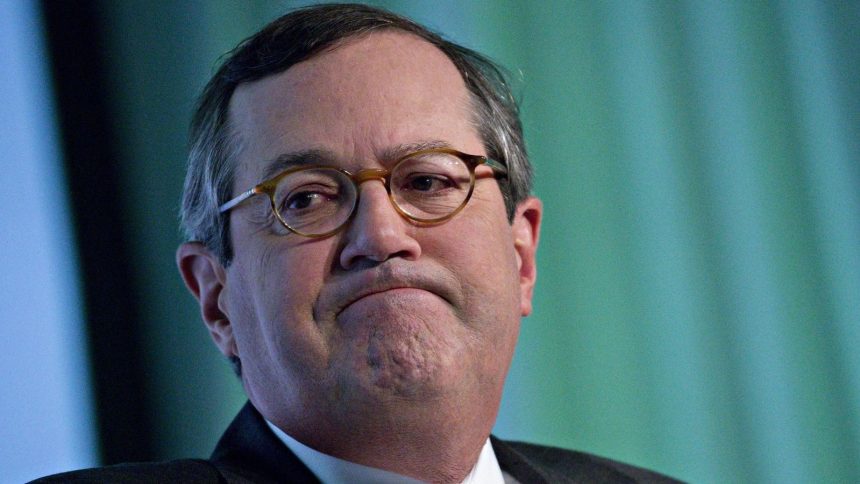In a significant reshaping of his administration, President-elect Donald Trump has unveiled a series of contentious personnel appointments, setting the stage for a potentially tumultuous second term. Among these, billionaire investment banker Warren Stephens has been selected as ambassador to the United Kingdom, whilst controversial figures such as former Defense Secretary nominee Pete Hegseth and the health-focused Robert F. Kennedy Jr. have raised eyebrows. The appointments reflect Trump’s intent to bolster loyalty and align bureaucracy with his political aims, with a mix of personal connections and previous support for Trump being key factors in these selections. This overt reliance on familiar allies and allies-in-arms underscores Trump’s ambition to have a government that echoes his, often polarizing, agenda.
Ideologically aligned appointees like Kash Patel as FBI Director and Charles Kushner as U.S. ambassador to France indicate Trump’s inclination to appoint individuals capable of pivoting crucial agencies to better serve his interests. Patel’s appointment, in particular, appears to be an answer to perceived betrayals and controversies from the previous administration, especially regarding the investigation into Russian interference in the 2016 election. Hegseth’s nomination has also sparked significant controversy due to unproven sexual assault allegations, showcasing a pattern of Trump’s willingness to overlook personal controversies if the appointee is firmly loyal to his cause. As a result, Trump’s cabinet likely reflects both an effort to reclaim power and a strategy to strengthen his political capital among the Republican base.
Appointing familial ties and political allies has also become a hallmark of Trump’s transition. Massad Boulos, the father-in-law of Tiffany Trump, highlights this trend, as his connections with the Arab American community during Trump’s 2024 campaign weigh favorably on his role as Senior Advisor on Arab and Middle Eastern Affairs. Similarly, Kushner’s placement as ambassador to France signifies a narrowing of focus on personal loyalty rather than institutional experience or qualifications. These familial and personal relationships in governance suggest a deliberate maneuver to secure loyalty and streamline political objectives, although they may reduce the range of perspectives and expertise in governance.
Trump’s cabinet and staffing choices also reflect a broader ideological alignment with controversial figures in health and science, as noted with the selections of Dr. Jay Bhattacharya for National Institutes of Health director and Robert F. Kennedy Jr. as Health and Human Services Secretary. Bhattacharya’s vaccine skepticism and pro-herd immunity stance, coupled with Kennedy’s vociferous opposition to childhood vaccinations, hint at a government that will likely prioritize divergent health policies that contrast starkly with established public health measures. This agenda is likely to reignite debates over public health protocols, notably those that gathered momentum during the COVID-19 pandemic, as evidenced by Trump’s stated intent to reconsider the effectiveness of current health agencies under his administration.
Moreover, Trump’s choice of seasoned political veterans such as Scott Bessent for Treasury Secretary and Pam Bondi for Attorney General reinforces a dichotomy among his picks that emphasizes both outsider conservativism and entrenched political ties. Bessent’s Wall Street experience, along with his pro-tariff stance, aligns with Trump’s broader economic objectives, which continue to champion protectionist policies. Similarly, Bondi’s place at the Justice Department could foreshadow an aggressive reform agenda aimed at reshaping legal enforcement priorities — potentially reflective of Trump’s ongoing grievances against federal justice entities including the FBI and the Justice Department itself.
In parallel, Trump’s appointments in key administrative roles such as Doug Collins for Veterans Affairs and Mike Huckabee as ambassador to Israel echo a concerted focus on fortifying relationships that resonate with his core voter base, particularly in veteran and evangelical communities. The new appointments illustrate Trump’s strategic positioning as he seeks to consolidate his influence, not merely among Senate-confirmed appointments, but through appointed roles that shape the ongoing national dialogue. This emerging administration will likely maximize its partisan ideological objectives while potentially alienating moderate Republican and independent voters.
As Trump embarks on this new chapter, the implications of these personnel appointments extend well beyond individual roles, marking a recalibration of power dynamics in Washington. By cultivating an administration characterized by loyalty, ideological alignment, and personal connections, Trump seems poised to approach governance by consolidating power within familiar circles, while resisting dissenting influences. The landscape ahead is laden with uncertainty and potential contention, as opposition forces mobilize against a cabinet that promises to reflect — and perhaps amplify — Trump’s unyielding commitments to his base, even as bipartisan cooperation appears estranged.



